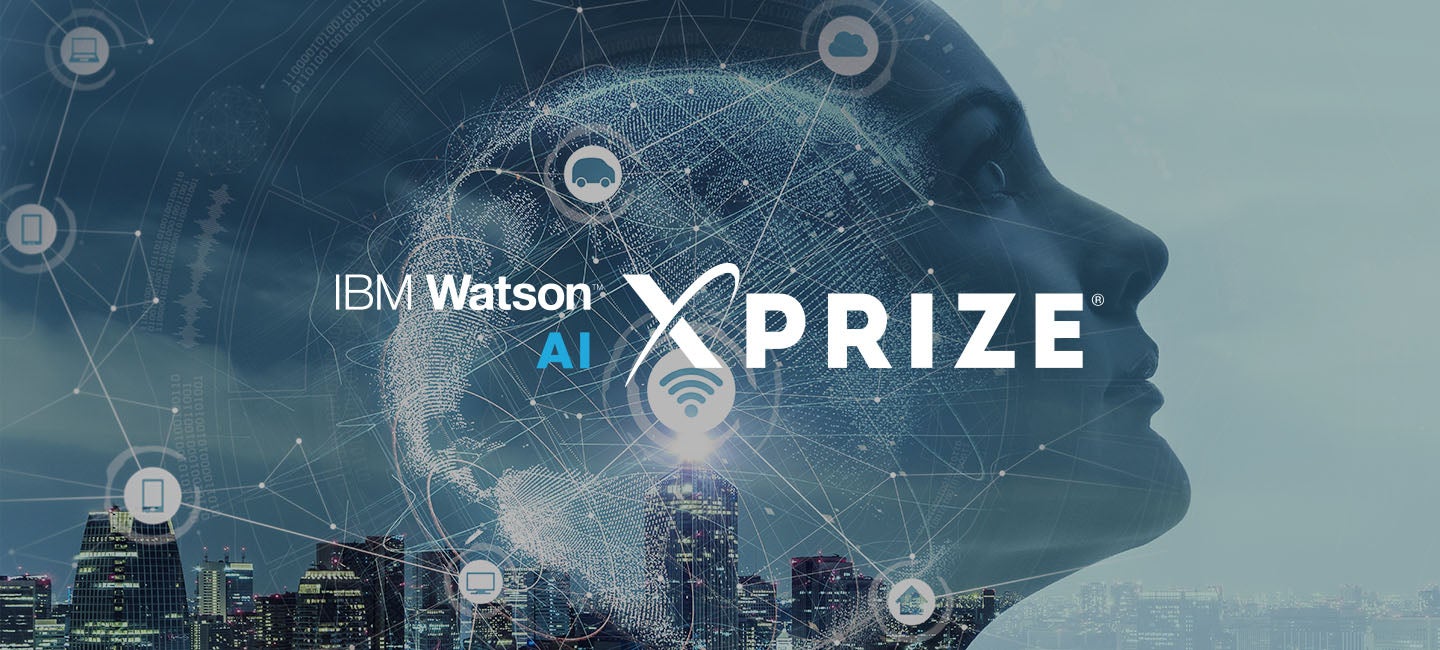With the AI industry constantly advancing and evolving, the $5M IBM Watson AI XPRIZE was designed to re-open registration twice during its timeline for a “Wildcard Round” as a way to include new AI applications into the competition. Wildcard Rounds ensure that the AI XPRIZE will result in modern, disruptive approaches to human and AI collaborations that transform and solve some of the world’s greatest challenges.
In this final Wildcard Round, XPRIZE has selected four teams to join the competition, bringing its official roster to 34 competing teams from 10 countries.
Team deepc, headquartered in Munich, Germany, initially started as an idea by a team of data scientists and medical doctors from Munich’s top universities LMU and TUM with the vision to use artificial intelligence to prevent medical errors and save human lives. Since then, deepc has won numerous awards and earned a lot of public attention for its cutting-edge deep learning technology. The first version of the AI software is currently trialed at TUM’s university hospital Rechts der Isar -- it is operating in a team with leading medical experts, guiding them towards highly suspicious findings, and helping ensure the highest quality and fast patient care. By creating a holistic AI-generated human avatar, deepc holds a lot of promise to revolutionize medical diagnostics. For more information about team deepc, visit deepc.ai.
Team Element Inc., headquartered in New York City, develops and distributes a mobile-based, software-only platform for biometric identity. Co-founded by Adam Perold and Yann LeCun, Element was one of the first AI labs focused on digital identity. Currently, over 1.1 billion people worldwide do not have formal identification, the majority of whom are children. While countries have adopted digital technologies like biometric identification to address this challenge, there is no commercially-available biometric solution for use on infants and young children, who have rapidly changing features.
Element is working to solve the challenge of biometric recognition for children under-five, with the aim to create the first platform capable of biometrically following a person from birth through old age. In partnership with Intellectual Ventures’ Global Good Fund, Element carried out the world’s largest infant biometric trial with 8,000 infants and young children in Cambodia and Bangladesh, and is currently field testing its infant solutions with 2,000 young children in Mozambique. For more information about Element, visit discoverelement.com.
Team ORBEM, headquartered in Munich, Germany, is developing AI technology to transform waste into food and to prevent the killing of billions of newborn male chickens. To feed the world, the poultry industry grows two breeds: broilers for meat and layers for eggs. Broilers, designed to gain weight quickly, suffer from low fertility rates. Incubated infertile eggs never develop a chicken and cannot be consumed, ultimately wasting more than 9 billion eggs on a yearly basis. The layer breed is optimized to lay eggs, leaving male layers in an unfortunate situation; They don't lay eggs, but, they also don't gain weight fast enough to compete with broilers in the meat market so they are killed immediately after hatching. Yearly, 7 billion 1-day-old male layers are killed. This practice is unethical, unsustainable, and very expensive. In order to feed the rising population, an efficient, sustainable, and animal friendly food industry is needed. With patented AI powered imaging technology, Team ORBEM classifies chicken eggs in three categories -- infertile, male, and female -- making a difference with a triple bottom line strategy: introducing billions of eggs into the global food market; preventing the unnecessary killing of billions of 1-day-old male chicks; and creating novel revenue streams.
Team Wadhwani AI, headquartered in Mumbai, India, is building a virtual weighing machine using AI-enabled anthropometry on a smartphone to provide accurate, tamper-proof, geo-tagged monitoring, while also integrating with existing maternal-and-child-health solutions. The first weeks have a disproportionate impact on a baby's life, but unfortunately, many of the 15 million low-birth-weight (LBW) babies born world over every year do not get the care they need. They are often simply missed by the healthcare system once they go home. Yet, they are easy to help. That is the grand challenge Team Wadhwani AI is taking on, part of the UN Sustainable Development Goal 3 -- to ensure no baby is left behind. Every day, millions of healthcare workers visit homes of newborns in developing countries for health assessments. Yet, something as simple as weight is not accurately captured in rural homes because of challenges in supply and maintenance of spring balances. Without the need for any additional hardware or even data connectivity, Team Wadhwani AI’s technology can provide a barometer for newborn health wherever a smartphone can reach. Team Wadhwani AI estimates it can make a dent in the 60-80% of neonatal deaths that LBW babies account for, and improve life for those who survive but have increased lifelong risk of low IQ, diabetes, and heart disease due to the absence of timely interventions -- by simply being able to track their most important health indicator.
